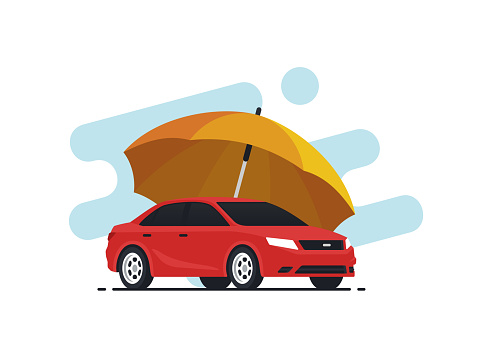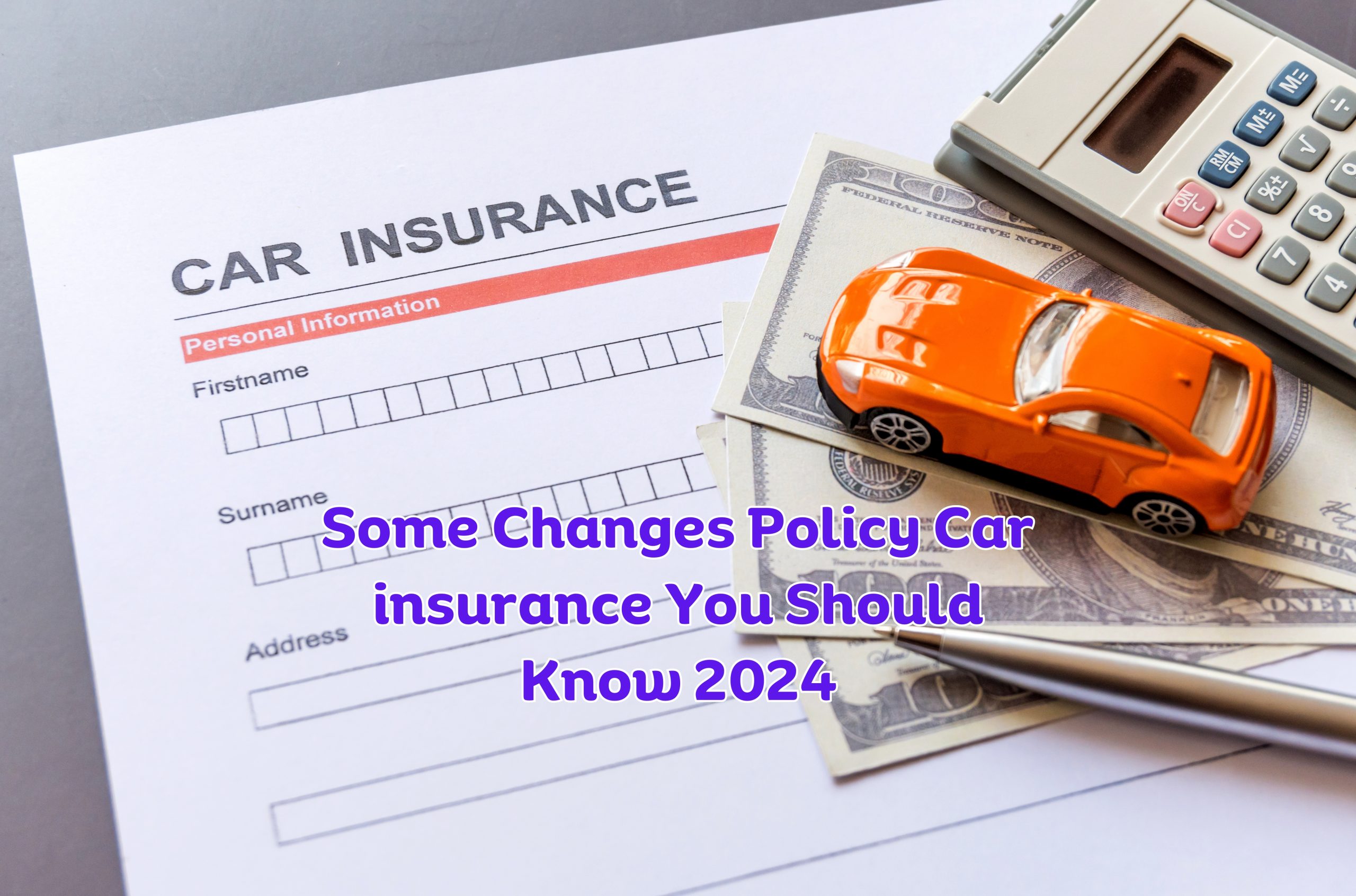New car insurance packages have been put in place since January 1, 2022: property damage or bodily injury, the minimum threshold for claiming expertise, and compensation scales… Find out everything that has changed in 2022 regarding compensation for claims!

Contents
- 1 Material damage, increase in IRSA package
- 2 Bodily injury, a significant reduction in the IRCA package
- 3 An increase in the expertise threshold
- 4 Is this increase in the price of car insurance justified?
- 5 What are the different types of insurance for company vehicles?
- 6 What coverage does business liability insurance provide?
Material damage, increase in IRSA package
The direct compensation package for the insured and recourse between automobile insurance companies (IRSA) aims to facilitate compensation for material damage in the event of a traffic accident between two vehicles. This year, the package has seen an increase of 1.67% and therefore rises to 1706 euros.
The IRSA plans to compensate the insured for the level of responsibility of the other driver involved in the incident. In Argus de l’Assurance, Guillaume Le Cam, head of automobile fleet customer service for broker Bessé, states that:
“The IRSA package is a good indicator of the evolution of the average cost of auto repairs. We see that this average cost has continued to increase for several years given the soaring cost of parts and repairs. This movement is not about to stop. »
Auto insurance is therefore not immune to the general dynamic with an increase in various costs linked to the automobile sector…
Bodily injury, a significant reduction in the IRCA package
The Automobile Corporal Compensation and Recourse Convention (IRCA) is the equivalent of the IRSA for all matters relating to bodily injury. It was created to facilitate the care and compensation of victims of road accidents. This is to avoid delayed treatment due to procedures between the insurance companies of the parties concerned.
This year the cost of IRCA fell by 15.7% and therefore rose to 1,254 euros with a drop of just over 200 euros compared to 2021. This drop in the cost of IRCA can be partly explained by a real reduction in road accidents leading to recourse to insurance for bodily injury. Indeed, the report from the French Insurance Federation (FFA) lists 19,200 claims including only 330 bodily claims in 2021, this represents a drop of 19% compared to the previous year.
An increase in the expertise threshold
The expertise threshold corresponds to the limit above which expertise is necessary to obtain recourse from insurers. In 2022, it goes from 650 euros (excluding taxes) to 850 euros (excluding taxes). This means that, following a road accident, if the material damage is estimated at less than 850 euros (excluding taxes), expertise is no longer mandatory!
In practice, insurers generally call on an expert to assess the cost of repairs without asking the question of the expertise threshold.
Is this increase in the price of car insurance justified?
This increase in the price of insurance can be explained for several reasons:
- The price of spare parts, necessary for automobile repairs, has increased by 6% since 2020;
- SUV-type vehicles are increasingly present on our roads: these vehicles are very expensive to repair due to their sophisticated parts;
- The labor required to repair a car costs more today, with an average increase of 3.2%;
- The Climate and Resilience law introduced in August 2022 ended the monopoly of car manufacturers on spare parts. Contrary to what insurers hoped, the arrival of independent repairers was not enough to reverse the trend and the price of parts continues to increase.
The car insurance landscape constantly evolves, adapting to new technologies, economic realities, and driving habits. As 2024 unfolds, some key changes are impacting how we get covered on the road. Staying informed about these adjustments can help you make informed decisions and potentially save money on your car insurance.
Rising Rates: A Persistent Trend
One of the most significant changes isn’t new but continues to be a pressing concern: rising car insurance rates. Inflation continues to be a major factor, driving up the cost of repairs, parts, and medical care associated with accidents. This puts a strain on insurance companies, who need to adjust rates to maintain profitability. Expect to see modest increases in 2024, potentially continuing a trend from previous years.
What You Can Do: While you can’t control inflation, you can shop around for better rates. Get quotes from multiple insurers and compare coverage options. Consider raising your deductible (the amount you pay out of pocket before insurance kicks in) to lower your premium.
Pay-Per-Mile (UBI) on the Rise
As technology becomes more integrated with driving, Usage-Based Insurance (UBI), often called Pay-Per-Mile, is gaining traction. UBI programs track your driving habits through telematics devices or smartphone apps. Factors like mileage, time of day driven, and harsh braking can influence your premium. Safe drivers who log fewer miles, especially during high-risk hours, can see significant discounts.
What You Can Do: If you’re a low-mileage driver who primarily drives during the day, UBI could be a cost-effective option. However, it’s not for everyone. Frequent drivers or those who commute during peak hours might not see savings. Carefully analyze your driving habits to determine if UBI is a good fit.
Tech Tools for Safer Driving and Lower Rates
The insurance industry is increasingly leveraging technology to promote safe driving and potentially lower premiums. Tools like telematics devices and phone usage-restricting apps can monitor driving behavior and encourage attentiveness on the road. By participating in such programs, you might qualify for discounts if you demonstrate safe driving habits.
What You Can Do: Consider telematics programs or apps offered by your insurance company. Not only could they save you money, but they can also make you a more mindful driver.

The Growing Need for Cyber Liability Coverage
Our cars are becoming increasingly connected, with features like advanced driver-assistance systems and infotainment centers. This connectivity introduces a new risk: cyberattacks. Malicious actors could hack into your car’s systems, causing safety hazards or financial losses. Cyber liability insurance is emerging to address this growing concern, protecting you from the financial repercussions of a cyberattack on your vehicle.
What You Can Do: If your car has advanced technology features, consider adding cyber liability coverage to your existing insurance policy. While it’s a relatively new offering, it could provide valuable protection in the future.
Don’t Overpay: Review Your Coverage Regularly
With all the changes in the car insurance landscape, reviewing your coverage regularly is more important than ever. Your driving habits, car ownership status, and life circumstances might change over time. An annual review can ensure you’re not paying for unnecessary coverage or neglecting essential protections.
What You Can Do: Schedule a yearly review with your insurance agent or broker. Discuss any changes in your driving habits or car ownership. Explore different coverage options and compare rates to ensure you’re getting the best possible value for your needs.
By staying informed about these key changes in car insurance policies for 2024, you can make smart decisions to secure the right coverage at an affordable price. Remember, car insurance is essential for protecting yourself financially in case of an accident. Don’t be afraid to shop around, explore different options, and take advantage of technology to potentially lower your premiums in this ever-evolving market.
Choosing the right insurance to protect company vehicles is not only about bringing your business into legal compliance, but it is also essential to preventing and minimizing financial and operational risks. In addition, when accidents occur, being insured allows the company to be assured that it will not be responsible for any damage suffered by the vehicles.
This article explores the different insurance options available for business vehicles, providing an overview of coverages, benefits, and points to consider when making an informed choice.
What are the different types of insurance for company vehicles?
Company vehicle insurance is an essential element in a company’s risk management.
It comes in several forms, adapted to various specific needs and risks. The most basic is civil liability insurance, compulsory in our country, which covers damage caused to third parties by the vehicle or its driver. This insurance is the basis of any business auto insurance policy.
Beyond this basic coverage, companies can take out additional insurance to optimally insure professional vehicles.
Comprehensive insurance, for example, offers more comprehensive protection, covering not only third parties, but also damage suffered by the company’s vehicle, whether following an accident, an act of vandalism or adverse weather conditions. Driver insurance, on the other hand, protects the driver in the event of bodily injury, a particularly important option in the event of a serious accident.
Other insurance options include theft insurance, which covers the vehicle in the event of theft or attempted theft, glass breakage insurance, which covers damage to the vehicle’s windows, and insurance assistance, offering breakdown and towing services, essential in the event of a breakdown or accident.
It is important to note that vehicle insurance will be effective, in the absence of fault of the driver. Indeed, if the driver of the vehicle is the cause of the damage through his behavior, his condition while driving or even his recklessness, it is possible, even very probable, that the insurance will no longer cover the damage and losses suffered. which will be the responsibility of the person driving.
What coverage does business liability insurance provide?
Liability insurance is the cornerstone of business vehicle insurance. It is designed to protect the company against financial claims resulting from damage caused to third parties by the vehicle or its driver. This includes property damage, such as damage to other vehicles or property, and bodily injury, including injury or death to third parties.
It is crucial to note that this insurance does not cover damage to the company vehicle or its occupants. Additionally, it does not cover incidents such as theft or damage caused by natural disasters.
For these risks, additional coverage is necessary. This is why it is important to take the time to select the insurance(s) to be able to guarantee maximum protection for employees using the vehicles made available to them by the company.
What coverage is offered by comprehensive insurance?
Comprehensive insurance is a comprehensive solution for businesses, offering extensive protection. It generally includes civil liability and adds coverage against damage to the company vehicle.
This coverage is particularly important because it protects the company against high costs associated with repairs or replacing the vehicle after an accident.
In addition to accident coverage, comprehensive insurance can include protection against theft, broken glass, and damage caused by natural events or acts of vandalism. Some policies also offer business interruption protection, covering lost revenue if company vehicles are out of service.
Specialized additional coverage options
For businesses with specific needs, there are specialized coverage options. For example, cargo insurance is essential for businesses that transport goods because it covers loss or damage to goods being transported. Business interruption insurance is another important option, protecting the business against loss of income in the event of vehicle downtime.
Other specialist coverages may include insurance for special equipment installed in vehicles, such as professional tools, navigation systems, or specific fittings for particular business needs.
How to compare quotes from different insurers?
Comparing insurance offers is essential to find the most suitable coverage at the best price. It is important to compare not only the rates but also the guarantees offered and the exclusions of each policy. Companies should also evaluate the quality of customer service and speed of claims handling of each insurer.
For an effective comparison, it is advisable to request detailed quotes from several insurers and review them carefully. An insurance broker can be a valuable ally in this process, offering expertise to help understand the different offerings and choose the best option for the company’s specific needs.
In addition, it is advisable to pay attention to prices that are too low, or do not correspond to the prices charged on the market for equivalent coverage: behind very low prices, very high deductible amounts may hide, for example.
Choosing the right insurance for your company’s company vehicles is a strategic decision. Adequate coverage not only protects the company’s physical assets but also ensures its operational continuity in the event of an incident involving its vehicles.
A careful assessment of business needs, combined with a thorough comparison of insurance offers, is essential to finding the best coverage at the best price.






